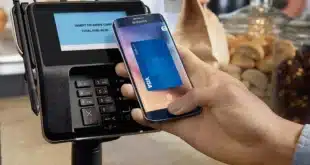Separate reports released this week show that the market for mobile content?everything from games to ring tones to video clips and beyond?may have farther to go than previously supposed by those who see the market as a nascent source of micropayments. Also, other research reveals content marketers may have to start paying close attention to the diverging interests of male and female buyers of content. First, it turns out U.S. wireless executives are not themselves sold on the idea of buying digital content over the air, as reflected in their personal behavior. Indeed, only 18% of attendees at a major wireless conference surveyed by Valista, an e-commerce and mobile-commerce payments-software provider, had downloaded content in the past week. By contrast, 53% of their counterparts in Europe had, according to an earlier survey at a London conference. Moreover, 29% had not downloaded any content in the past month and 15% never have. The survey, conducted at the CTIA I.T. & Entertainment 2005 conference in San Francisco this week, canvassed more than 100 attendees. Valista executives termed the results disappointing for the mobile-content market in the U.S. “We were surprised to find out that people working in the industry are not downloading content,” said Raomal Perera, chief executive of Valista, in a statement. “The fact that only 18% of respondents downloaded content in the past week underscores the need to improve the process of discovering, downloading, and paying for content.” The anemic adoption of mobile downloads may be related to technical difficulties. The Valista survey found that while 64% said downloading was easy and convenient, the rest found it difficult, blaming “configuration issues” and “network interruptions.” Indeed, Valista discovered 22% of any content purchased was bought through a subscription plan, a level 14% higher than in the European survey. Wireless executives may also be wary of content downloads because they're costing carriers more money than anyone supposed. A separate study conducted by researcher iGilliottResearch Inc. and released through billing-software vendor Qpass Inc. reveals that carriers worldwide will lose more than $5.6 billion?or 18.3% of their total revenues?because of problems with billing for and delivery of premium digital content. The firm predicts that loss will grow to $18 billion by 2009. Finally, a report from research firm M:Metrics Inc. reveals significant gaps between male and female transaction patterns when it comes to mobile content. The firm's August Benchmark Survey says that while females are significantly less likely than males to access most mobile data services, they are 6% more likely to download ring tones, accounting for 52.6% of mobile subscribers who purchased at least one ring tone in the quarter ended in August. Males, however, buy more ringback tones, sounds wireless customers can buy and are heard when people call those subscribers. They were 16% more likely to have subscribed to a ringback service in August, and 25% more likely to have subscribed to one that they have since canceled. When it comes to music generally, mobile subscribers are most interested in moving songs from a computer to their cell phones?12.7% are likely to do so in the coming year, according to M:Metrics. By contrast, fewer than 9% said they are likely to subscribe to a mobile music service in next 12 months. And in both instances, males constitute the majority of those interested in rendering their cell phones into music devices.
Check Also
Eye on Point of Sale: Lightspeed Marks $1 Billion in Revenue; Manhattan Associates Secures a Shopify Presence
In a first, point-of-sale system and e-commerce platform Lightspeed Commerce Inc. exceeded $1 billion in …





